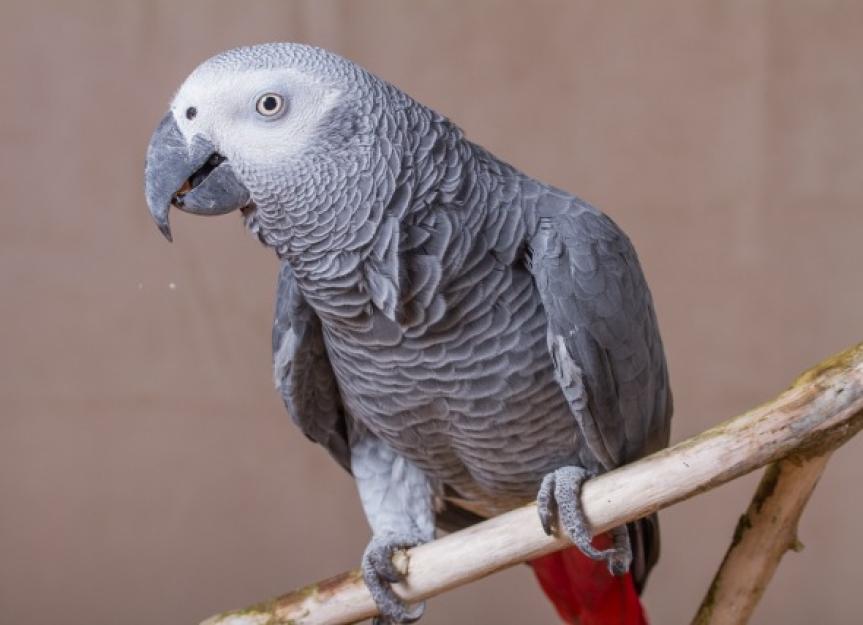Uncategorized
How Do I Train My African grey parrot to Talk?
In the wild, birds are agile communicators. They use unique sounds to identify and bond with their flock. Their advanced communication skills help flock mates stay in touch while migrating over oceans, hunting in dense forests and scanning the sky for predators. buy african grey parrot online
Considering how important “talking” is to birds’ survival in the wild, it’s perhaps no surprise that when we take them on as pets, they want to communicate with us, too.
“Birds hear people making these noises to each other and they think, ‘maybe if I make the same noises I can fit in with this flock,’” said board-certified avian veterinarian Dr. Peter Helmer of BluePearl Veterinary Partners in Tampa, FL. “People usually respond positively, and that reinforces the behavior.”
With lifespans topping 50 years for some species, teaching a pet bird to speak gives you the opportunity to form a unique, long-lasting relationship that would be hard to replicate with any other pet.
“There’s a level of communication and bonding you can’t have with any other animal,” said Dr. Laurie Hess, a board-certified avian veterinarian and owner of the Veterinary Center for Birds and Exotics in Bedford Hills, NY.
Here, find out more about which common pet birds are the chattiest and how to train your bird to talk.
Which Birds are the Best Talkers? – buy african grey parrot online
African grey parrots and some species of Amazon parrots are more likely than others to learn to talk, the doctors said. But they’re not the only ones. “I once had a patient, a little parakeet, who spoke English, Spanish and Hebrew,” said Hess.
However, regardless of species, most birds don’t start communicating until they’re about a year old, she said. It’s not clear why.
“It seems that, like children, their brains are processing language and sounds early on,” she said. But it takes them longer to use what they’ve learned to try and communicate back.
While birds pick up a lot when they’re young, they can learn to speak at any point in their development (it’s just more difficult to teach a bird to speak if it was a poor communicator throughout most of its life). “You can absolutely teach an old bird new tricks,” said Helmer.
Teaching Your Bird to Talk: It Starts with a Relationship
Humans have to learn to crawl before they walk and similarly, birds have to learn to trust before they talk. Anything you can do to build and strengthen your relationship with your pet will make it more inclined to want to communicate with you, said Helmer.
When it comes to bonding with birds, the goal is to get them to associate you with something positive, said Hess. This could be a treat, head scratches or verbal praise, like greeting the bird in a high-pitched, sing-song voice. You want to be seen as a provider of good experiences so the bird is encouraged to interact with you, she said.
“Having that positive bond tells them you’re a flock mate and a friend,” said Helmer.
Then, Figure Out Your Bird’s Favorite Rewards
Like training any animal, teaching a bird to talk starts with breaking down the desired action into small, easily reward-able behaviors and then gradually raising the bar.
While some birds are motivated by physical affection, the doctors said, most are willing to work hard for a tasty snack. Try experimenting with peanuts, sunflower seeds, or tiny pieces of cracker. In general birds can have just about anything we eat except avocados, chocolate and salty foods, said Hess. It’s also recommended to avoid anything with caffeine.
Different birds have different tastes. Discovering which treat motivates your bird is part of the relationship-building process, said Helmer.
Pick a Simple Word, and Don’t Stop Saying It -buy african grey parrot online
To encourage your bird to mimic you, pick a starter word that’s one or two syllables long, said Hess. Say it repeatedly to the bird throughout the day, using the same tone and inflection each time, and pair it with a reward. “Birds will pay attention to you and do what you want if you give them something to work for,” she said.
Good starter words include “hello,” “hi,” and your bird’s name, if it’s not too complex.
“The word itself is not so important, but the person teaching it needs to know this is a word they’ll potentially hear a lot of,” said Helmer.
Some birds will start to mimic you in a few days; others may take a few months. But with enough repetition, the bird will start associating the noises you’re making with treats and positive interactions, said Helmer, and they’ll try to fit in.
“Birds are flock animals,” he said. “What they really want is that interaction with their flock.”
Once your bird masters one word, try adding another, slowly building up to a full sentence or phrase. Raise the bar slowly, rewarding them for saying two words, then three, then four.
“Each time the bird adds a word, we praise and reward it with a novel treat,” said Hess. “That’s how we build a bird up to learning a song, for example.”
Reinforce Desired Behaviors
Sometimes birds are a little too good at mimicking the noises in their environment. They may start imitating the beep of a microwave, the sound of the garbage truck, or the expletives of an occasionally potty-mouthed owner.
If your bird picks up undesired words or annoying noises, just ignore it, Helmer said. Don’t yell or douse the animal with a spray bottle. Instead, leave the room or turn your back. “Their vocabulary will change over time based on what you reinforce and what you don’t,” he said.
our tags to buy African grey parrot:
buy african grey parrot online, african grey parrot buy online, african grey parrot for sale near me, african grey parrots for sale, african grey parrot for sale, grey african parrot for sale, grey african parrots for sale, african grey parrot for sale in Minnesota, baby african grey parrot for sale near me


Outstanding post, I conceive blog owners should learn a lot from this site its rattling user pleasant.